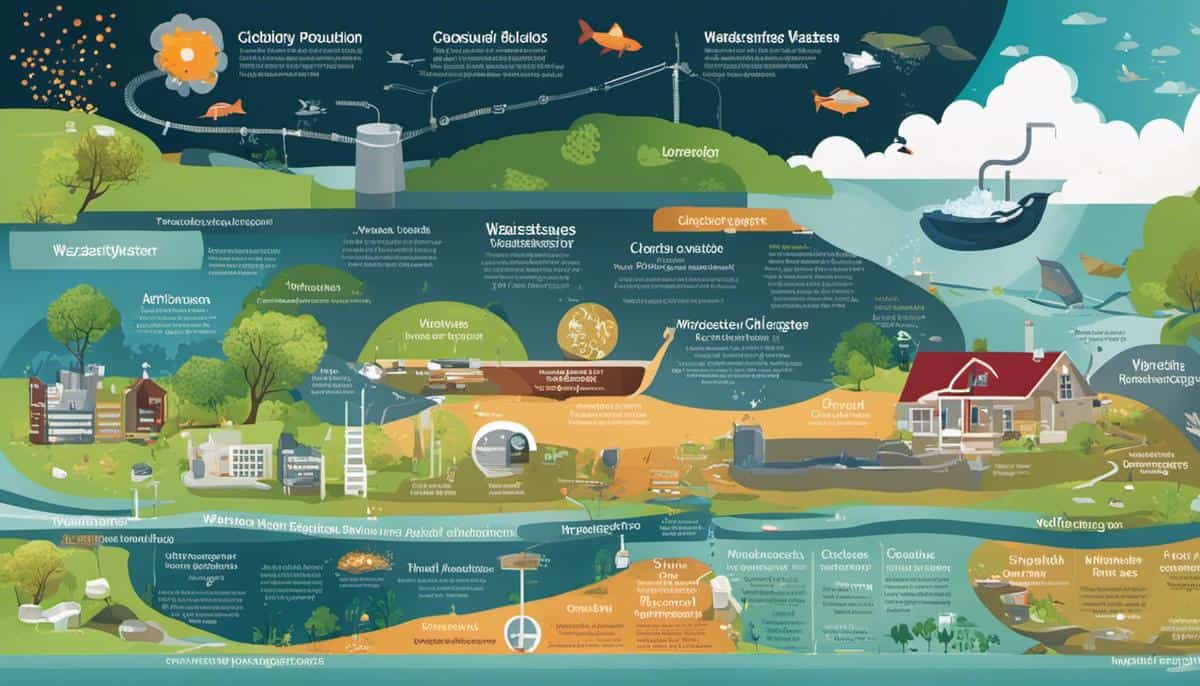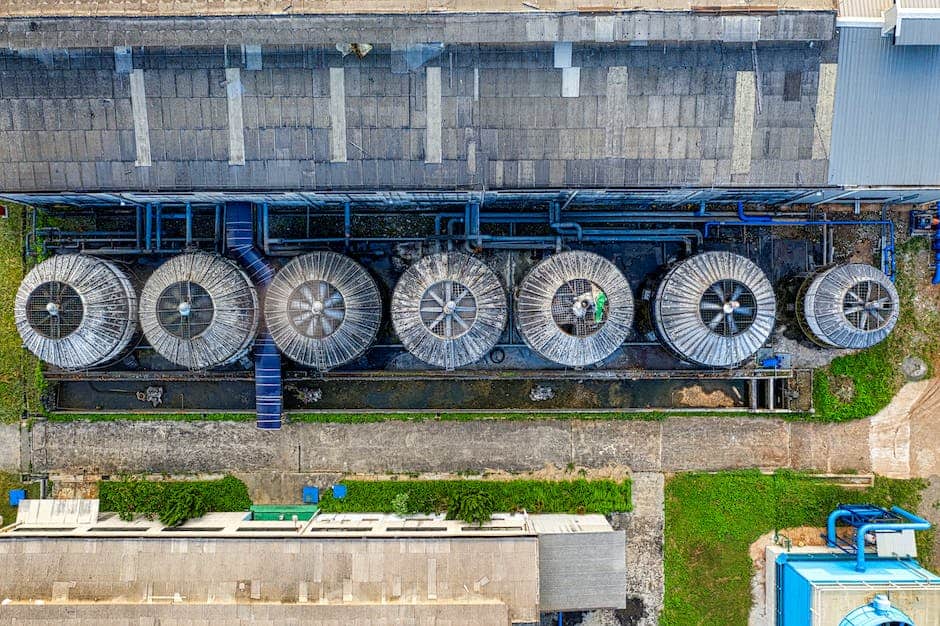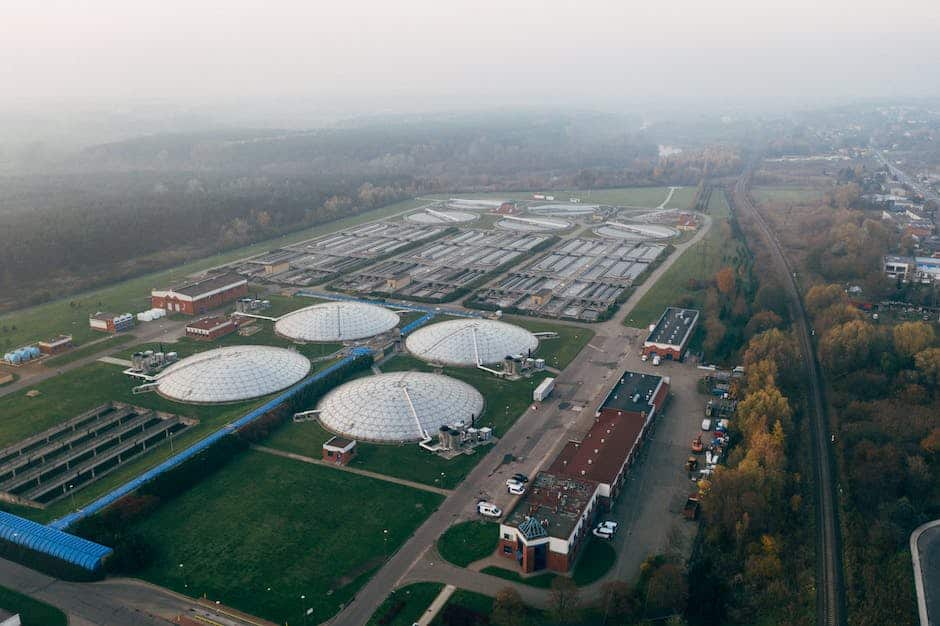
30 Oct Unveiling the Benefits of Effective Wastewater Treatment
Imagine a world where water, one of our most valuable resources, is endlessly reused, creating sustainable economies and promoting public health. While this may seem utopian, such a world can exist, all thanks to the advances in wastewater treatment methods. Our understanding of water scarcity, environmental sustainability, economic development, and public health outreach is significantly enhanced by delving deeper into wastewater management. This discussion disseminates information on the nature of wastewater and the fundamental processes employed in its treatment. Furthemore, it explores the immeasurable environmental, health, and socio-economic benefits accrued from effective wastewater treatment.
Understanding Wastewater
Demystifying Wastewater: Composition and the Inevitability of Treatment
To fully comprehend the gravity and importance of wastewater treatment, one must first understand the composition of wastewater itself. Wastewater, undeniably, is an intricate blend of materials, comprised not solely of water, but also of many impurities and constituents. A holistic exploration of the complex interaction of elements within these waters sheds light on the necessity of diligent, comprehensive treatment methodologies.
Wastewater primarily originates from residential, commercial, and industrial sources, and carries a complex chemical makeup reliant upon its source impetus. Primarily, wastewater consists of approximately 99.9% water, with the remaining fractions comprising of both organic and inorganic materials, microorganisms, and a variety of gases.
Dominating the organic compounds in wastewater are proteins, carbohydrates, fats, oils, and urea, stemming from the miscellany of human waste, soaps, food particles, and detergents. Additionally, myriad inorganic constituents pervade these water streams as well. These include ions or salts, heavy metals, and minerals introduced by contamination or natural geographical factors.
Microorganisms, unsettlingly present, yet crucial to the overall treatment process, come in the form of bacteria, viruses, parasites, and fungi. Above the surface of the water, gaseous byproducts such as oxygen, nitrogen, carbon dioxide, and the infamous “rotten egg” smell of hydrogen sulfide exist in persistent symbiosis with the water chemistry below.
Treatment is thus critical, not just to reclaim water resource loss, but also for the protection of human and environmental health from potential catastrophes. Unchecked, wastewater can transmit diseases, severely impact aquatic ecosystems, and disrupt the balance of our biosphere by contributing to issues such as eutrophication and hypoxia.
Wastewater treatment processes, intricately designed to tackle this composition, traditionally consist of three major stages: primary, secondary, and tertiary treatment. The primary level removes physical constituents, secondary focuses on dissolved biological matter, and the tertiary stage polishes the treated water before release or reuse, reducing remaining inorganic and organic substances, as well as pathogens.
It is, therefore, a matter of imperative urgency to recognize wastewater for what it truly is: a quagmire of potential problems, but also veritable possibilities for resource recovery and sustainable water management. Through rigorous, advanced treatment technologies, we can confront this multidimensional challenge and harness its potential, in step with nature’s delicate equilibrium.
To diminish the implications of the word “waste” in wastewater is to ignore the reality and gravity of its composition, and to neglect the unyielding need for its treatment. Only through full comprehension can we pave the way towards viable solutions to the core issues at hand.

Fundamentals of Wastewater Treatment Processes
Pioneering Technologies and Processes Integral to Wastewater Treatment
Continuous breakthroughs in the field of wastewater treatment reveal intriguing and important glimpses into the ingenious methods utilized to safeguard both human and environmental health. This article delves into the underpinning technologies and processes fundamental to wastewater treatment.
A stalwart among these is the application of biological treatment methods. In its essence, a biological wastewater treatment method utilizes a variety of microorganisms to break down organic pollutants. The controlled use of bacteria and other microorganisms is a cornerstone of secondary treatment stages, mimicking naturally occurring biodegradation mechanisms within a more effective, confined environment.
Membrane technology, a more recent yet increasingly prominent development, demonstrates a revolution in wastewater treatment. Utilizing a semi-permeable barrier, this phenomenon allows certain constituents to pass while retaining others. Nano and ultrafiltration are membrane technologies instrumental in removing a variety of contaminants, including bacteria, viruses, and pharmaceutical residues. Further, the reverse osmosis process, although energy-intensive, removes dissolved salts and emerging micro-pollutants, producing water of exceptional quality.
Sludge treatment methods, although often overlooked, provide substantial benefits. Anaerobic digestion, for instance, breaks down organic solids into biogas, a renewable energy source, and biosolids, a potential nutrient-rich soil amendment. Composting and incineration processes further transform the sludge into reusable substances, thereby creating a circular wastewater treatment model.
Chemical treatment forms another crucial arm of wastewater treatment methodologies. Traditional chemical coagulation and flocculation, using iron or aluminum salts, amalgamate suspended solids into larger particles, simplifying subsequent removal. On the other hand, advanced oxidation processes using ozone or hydrogen peroxide destroy persistent organic pollutants, demonstrating an exceptional pollutant removal efficiency.
An understanding of processing control and automation cannot be overlooked. Given the complexity of wastewater composition and variability in influent quality, process automation and control systems are essential. These systems harness advances in sensor technology and data analysis tools, enabling timely adjustments and process optimization.
Energy efficiency in wastewater treatment processes has become an increasingly vital area of focus. Processes such as the utilization of energy from biogas and the development of energy-positive wastewater treatment plants have seen growing attention. Harnessing renewable energy sources has the potential to transform wastewater treatment plants from energy consumers to energy producers, dramatically decreasing the environmental footprint of these essential operations.
Lastly, the relatively novel field of microbial fuel cells offers fascinating possibilities. By converting the chemical energy stored in organic matter directly into electrical energy, these fuel cells could potentially provide a sustainable power source, diminishing the energy costs associated with wastewater treatment.
While the above is a sketch of the fundamental technologies and processes utilized in wastewater treatment, it is merely an insight into a flourishing field, teeming with potential. Enthralling insights await every dedicated scholar and researcher, as they delve into the complexities and innovations of wastewater treatment technologies. Exploration and continual curiosity are key characteristics that should drive pioneers in any field, the realm of wastewater treatment being no exception.

Environmental and Health Benefits of Wastewater Treatment
Delving into the environmental and health benefits accrued from apt wastewater treatment, it is interesting to explore how our commitment to diligent purification plays a pivotal role in safeguarding the health of the global population and the preservation of the ecological balance.
Firstly, it must be emphasized that effective wastewater treatment greatly reduces public health hazards. When wastewater is purified, noxious toxins, pathogens, and harmful substances are eradicated, thereby greatly diminishing the likelihood of waterborne diseases. A vast range of illnesses, such as cholera, typhoid, and dysentery, can be averted, contributing to a healthier and vigorous populace. By reducing sickness, the strain on our healthcare systems is considerably lessened too.
Relevant to ecosystems’ durability, correctly managed wastewater treatment aids in preventing species extinction. Acknowledging the fact that millions of organisms rely on water to exist, the sustenance and flourishing of biodiversity is remarkably dependent on the quality of aquatic habitats. Purging wastewater of harmful elements enhances the survival of aquatic species and safeguards the delicate ecological equilibrium.
Simultaneously, recycling waste water contributes to water conservation. World “water stress” indices show an increasing number of regions struggling with scarce water supplies. Treating wastewater for reuse, especially for agricultural purposes, lessens the strain on freshwater resources significantly. It feeds into a circular economy and allows for a more sustainable manner of resource consumption. A substantial bonus to farmers, treated wastewater is replete in nutrients that are favorable for crop growth, aiding agricultural productivity.
Equally significant is the reduction in pollution related to efficiently treated wastewater. Untreated or poorly managed effluent being discharged into rivers and oceans deteriorates the quality of these water bodies impacting marine life detrimentally and triggering off dangerous events such as eutrophication. When wastewater treatment procedures are thorough and stringent, these ensuing hazards are well eliminated.
Finally, efficient wastewater treatment plants can convert the solid waste product or ‘sludge’ into renewable energy. This biomass resource, usually discarded, can be harnessed to generate electricity and heat – making these plants energy-neutral or possibly even energy-positive. Indeed, research is currently ongoing in generating biofuel from wastewater, underscoring the potential of wastewater treatment as a future-oriented, renewable energy source.
In summary, proficient wastewater treatment is a domino effect of health and environmental benefits, progressively diffusing through society. It potentiates multiple vital positives: from safeguarding public health to nurturing biodiversity, conserving limited freshwater, curbing pollution, and pushing the boundaries of renewable energy. Emphasizing these merits, the narrative becomes clear – investing in robust, sustainable wastewater treatment infrastructures is integral to our collective pursuit of a healthier population and a greener planet.

Economic and Socio-economic Benefits of Wastewater Treatment
Investigating the Economic and Social Benefits of Effective Wastewater Treatment
The far-reaching benefits of wastewater treatment are not confined solely to the environmental sphere; they also extend to significant economic gains and social welfare. It is vital that this resonates in strategies aimed at sustainable development, and that investments in wastewater treatment facilities be seen as a necessity rather than a burden.
In discussing the economic viability of wastewater treatment, it is essential to consider the financial implications related to untreated wastewater. Notably, unprocessed wastewater has a direct negative impact on the ecosystem, including the degradation of fishery resources or public health costs associated with waterborne afflictions. Lack of an efficient wastewater treatment plant risks the proliferation of disease-carrying organisms, thereby causing increased expenditure on healthcare systems.
Conversely, effective wastewater treatment plants contribute to a decrease in healthcare costs by preventing the spread of waterborne diseases, thus leading to significant savings. Further, the investment in wastewater treatment facilities generates jobs both directly and indirectly, contributing to economic growth and stability.
Simultaneously, the benefits of treated wastewater provide valuable revenue sources. For instance, treated wastewater can be employed in agriculture for irrigation purposes, reducing reliance on freshwater resources. It offers a cost-effective, reliable water source for farmers, thereby boosting agricultural productivity and profitability.
Moreover, innovative technology has allowed for the conversion of wastewater sludge into renewable energy forms, including biogas. This transfer of waste into energy provides an opportunity to reduce operating costs of the wastewater treatment process, furnishing potential capital returns. Biogas generation, in particular, can serve as a stable energy source, further supporting local economies and contributing to energy security.
From a social standpoint, effective wastewater treatment helps uphold the standard of living and improves community welfare. By preventing contamination of water bodies, wastewater treatment safeguards biodiversity and sustains aquatic species critical to local livelihoods and cultural practices.
Equally important is how wastewater treatment contributes to maintaining the balance of our ecosystems, preventing the degradation of natural habitats that ultimately unfolds as decreased ecological services – ultimately impacting humans.
It also plays a crucial role in water conservation. Amid increasing water stress due to population growth, urbanization, and climate change, the reuse of treated wastewater presents an alternative water source for non-potable uses. This not only helps mitigate water scarcity but also preserves freshwater resources for potable uses.
The argument that the merits of wastewater treatment equate only to environmental benefits is a gross misunderstanding. The process also yields considerable economic return and societal welfare improvements thereby countering the notion of the wastewater treatment process as merely a cost-intensive endeavor. It should be viewed as an opportunity for garnering economic advantages, safeguarding public health, and preserving the environment – a triple-bottom-line gain worthy of recognition and investment.
The strides taken in the field of wastewater treatment bear transformative potential for our world. Treatment processes not only safeguard environmental health and biodiversity, but also substantively enhance public health outcomes. Moreover, they fuel economic growth, create jobs, and enable potential recovery and reuse of valuable resources. These benefits, while substantial, can only be reaped by adopting a more proactive approach towards wastewater management worldwide. Highlighting the gravity and the multi-faceted benefits of wastewater treatment should inspire reinvigorated commitment towards infrastructural investment, legislation, and efficacious policy-making in this sphere.




Sorry, the comment form is closed at this time.